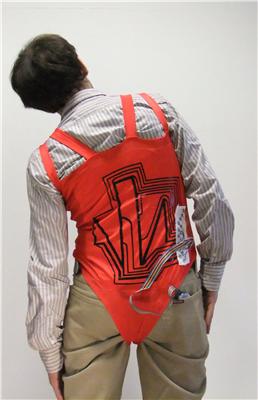Dec 14 2012
Wearable technology is not only for sports and fashion enthusiasts it can also be used to monitor and aid clinical rehabilitation according to new research published in BioMed Central’s open access journal BioMedical Engineering OnLine.
 Back bending leftwards
Back bending leftwards
Neurorehabilitation researchers from Italy have developed a low cost, wearable system, consisting of strain sensors made of conductive elastomers printed onto fabric. A low voltage battery powers the sensors, which are then able to send data to a computer via Bluetooth.
In this case study a wireless inertial sensor (MEMS) containing triaxial accelerometers and magnetometers was used to validate the accuracy of their results. Tested in a healthy subject the wearable sensors were used to collect a comprehensive set of over 600 different movements, at varying speeds and number of repetitions, over a range of movements. In all examples the wearable sensor was accurately able to measure movement.
This device will allow remote monitoring of physiotherapy exercises at home, posture, or flexibility during normal everyday tasks. Dr Michelangelo Bartolo who led this study explained, “So far we have only looked at trunk movements, which can be used to monitor flexibility and core stability. This system is not aimed at high precision but is an easy-to-use, inexpensive device, and is a real advancement in the development of portable, remote monitoring of rehabilitation.”